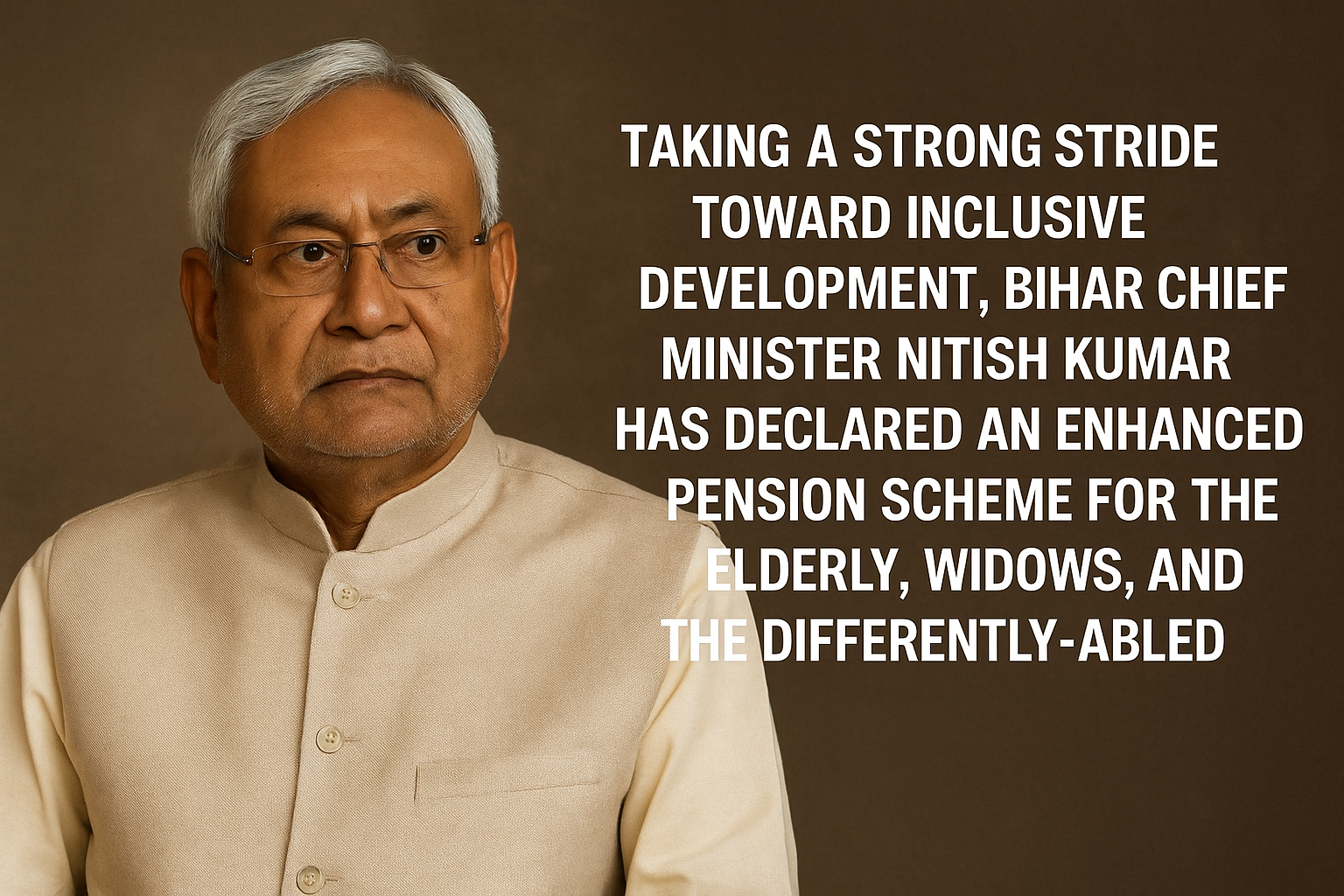
In a significant step toward social welfare, Bihar Chief Minister Nitish Kumar has announced a major increase in pensions for senior citizens, widows, and persons with disabilities. Starting July 2025, beneficiaries under the Social Security Pension Scheme will receive ₹1,100 per month—up from the current ₹400. This revised amount will benefit over one crore people across the state, offering much-needed financial relief and improving their standard of living.
This announcement comes ahead of the upcoming state elections and is widely seen as an effort to win the support of vulnerable sections of society. The revised pension will be transferred directly to beneficiaries' bank accounts on the 10th of every month, ensuring transparency and timely delivery.
Sharing the news on social media, Chief Minister Nitish Kumar emphasized the importance of supporting the elderly, describing them as a vital part of society whose welfare must remain a priority. The decision is expected to provide critical support to those who depend on this modest income to survive.
In addition to the pension hike, the Chief Minister also announced an increase in the honorarium for workers associated with the JEEViKA project. JEEViKA is a flagship programme in Bihar that empowers rural women through self-help groups and community-driven initiatives. It plays a crucial role in making women self-reliant by helping them start small businesses, access credit, and gain confidence.
Under the new policy, women working with JEEViKA will receive double their current honorarium. This boost, funded by the state government, is intended to raise morale among workers and improve the effectiveness of the programme. JEEViKA workers are responsible for vital tasks, including training, administration, and mobilizing women into self-help groups. The increased payment recognises their contribution and reaffirms the government's commitment to social development.
Another important change was announced for self-help groups (SHGs). Previously, SHGs had to pay 10% interest on loans above ₹3 lakh. Under the new provision, this has been reduced to 7%, with the state government covering the interest gap for banks. This reduction in interest will ease the financial burden on SHGs and allow them to invest more efficiently in income-generating activities. According to the Chief Minister, this move is expected to enhance the income and living standards of JEEViKA members.
These announcements were made following a meeting of the Mahila Samvad Programme, which witnessed participation from thousands of women across Bihar. The programme reportedly engaged over 3.7 crore women voters, nearly half the state’s electorate, indicating the scale and political significance of the event.
It’s worth noting that just days before this announcement, Tejashwi Yadav, former deputy chief minister and leader of the Rashtriya Janata Dal (RJD), had made a similar promise. He stated that if the RJD returns to power, women would receive ₹2,500 per month under the Mai-Bahin Samman Yojana, and girls would be supported through the Beti Samman Yojana to promote education. These competing promises highlight the growing political focus on women’s welfare and empowerment in Bihar.
Bihar remains one of India’s poorest states, with much of its population residing in rural areas and depending on small, unstable income sources. Many struggle with poverty, limited educational opportunities, and inadequate healthcare. In this context, government schemes like the enhanced pension and JEEViKA support can bring tangible improvements to daily life.
However, for these schemes to succeed, public awareness is crucial. People must be informed about their eligibility and the application process. Local administrations must ensure efficient implementation so that no eligible person is left out. Social workers, teachers, and community leaders have a vital role to play in spreading awareness and helping residents access these benefits.
This is a defining moment for Bihar to unite in support of its most vulnerable citizens. With proper planning, transparency, and execution, these welfare measures can pave the way for a more secure and hopeful future for the people of the state.





















